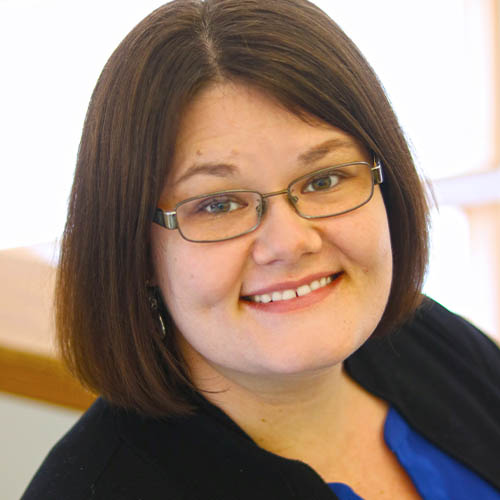I consider myself to be a law-abiding citizen. My last personal experience with law enforcement was when I was pregnant with my son, who is now old enough to drive. There is a small town between Cedar Rapids and my hometown where the speed limit goes from 55 mph to a mere 25 mph… Can you see where this is going?
I was clocked going 30 mph. I paid my ticket and still slow down to 25 mph each time I pass through on the way to visit my parents. The ticket and experience experience have been, for the most part, the extent of my personal exposure to law enforcement and the judicial system. I grew up in a home where police officers were viewed as helpers. Honesty and integrity were core values my parents instilled into me from toddlerhood.
A Phone Call from the Department of Corrections
In 2022, the local Department of Corrections contacted our clinic. Some individuals at the Nelson, Anchor, and Hinzman Centers were experiencing a gap in healthcare. They came to tour and learn about what we do at the clinic. At the same time, we were given a crash course on the correctional system. The map showing the route from first incarceration to full freedom off probation is complicated enough to make your head spin.
While individuals are in prison, they have access to medical services and medication. Since beginning our work with the 6th Judicial District Department of Corrections, I have heard multiple times that prison is where healthcare issues were finally sorted out. It is there that proper medication brought stabilization.
What Comes Next After Prison?
Once released from prison or jail, individuals can be sent to one of the local centers here in Cedar Rapids. There are different statuses at the center, but for many, they are still considered incarcerated while there. That means that they cannot be approved for Medicaid. However, they are not living in the jail or prison anymore, so they cannot access the healthcare there. The only option that is covered is the emergency room and hospital.
We all know that a myriad of health concerns do not involve a need for the hospital. So, the Judicial District wrote and received a grant to provide us with funds for medication for the incarcerated living there on campus. We also see them here at our clinic for medical check-ups.
Preventing a Return to Old Habits
Since that time, we have been helping to meet their medical needs, managing chronic conditions, and providing free medication until they are released from the center. I see this work as a valuable part of reducing recidivism.
If someone is not properly medicated for mental health concerns or is not feeling well because of untreated physical health issues, he or she may be more likely to retreat to old habits and end up back in the system again. We want to be even just a small part of helping individuals to keep taking positive steps towards a productive life outside the judicial system.
Navigating Access to Healthcare
My role is unique here at the clinic. I get to work alongside some wonderful providers and nurses, but my background is not medical. It is in sociology and psychology. Here at the clinic, I am responsible to screen patients for health insurance eligibility, help them find primary care (if they obtain insurance), and to connect them with other community resources for needs beyond the scope of our clinic.
In January, the 6th Judicial District invited me to visit the centers to present about navigating the healthcare system. I talk about state and employer insurance, what insurance terms mean, when to use primary care vs urgent care vs ER, and healthcare expectations. This includes things like showing up to an appointment on time, asking clarifying questions, and giving notice when unable to make an appointment. I go out there twice a month.
Learning While Teaching
I was not sure what to expect at the initial presentation. My first time, a staff member was in there with me. I was honestly a little nervous when she told me that she would only be sitting in with me for this one session. Other times I would be alone in the room with individuals recently out of jail or prison. Most of the time, I would be alone in a room full of formerly incarcerated men. She assured me there was a camera that was always on and could be seen up at the front desk. It was there just in case any assistance would be needed.
I took a breath and started that first presentation. By the end of that initial night, my concerns about being alone in the room in the future faded away. Now I can honestly say that I do not feel uncomfortable or unsafe there at all. These men and women have been nothing but respectful towards me. These human beings raise their hands to ask questions. They ask a lot of questions, and good ones at that. They wait their turn for assistance, and they genuinely want to know how they can address medical concerns.
I have never been sworn at, degraded, told off, or had even a semblance of aggression shown towards me. Instead, sometimes I’m called ma’am and am always told thank you repeatedly at each presentation. These men and women have once again taught me the valuable lesson that there is so much more than appears on the surface.
There is So Much Beneath the Surface!
I was surprised by their questions. The men, especially, seem to have little idea about routine medical care or how to access primary care. Their questions are honest and genuine, but simple and basic. No one ever took the time to explain to them how to navigate the healthcare system. These men and women are eager to learn. Many have health conditions that need addressed.
I am glad to be able to help them to understand the importance of healthcare and their right to access it. Many times, I see people at the clinic for an appointment the very week I do a presentation at the center. They are ready to start addressing their health!
Opening My Eyes
In the clinic, I have an opportunity to meet one-on-one with these individuals. This is where my eyes have really been opened. Many are used to being seen by society only by their label as a criminal. Now, they have made wrong choices and had consequences for their actions, but below the surface, there is much more than just criminal activity. They have goals and hopes and dreams.
Many share experiences of childhood trauma, deviant behavior modeled by caretakers, and early exposure to drugs and alcohol. These experiences do not excuse the criminal acts, but they do give perspective.
When I hear stories like these, it makes me ponder… If I had grown up in their circumstances, where would I be now? Would I be the same law-abiding citizen if I watched my parents dodge police and view them as enemies instead of helpers? What if If I had grown up with drug paraphernalia in my home and spent my childhood around people strung out on drugs? Would a speeding ticket be the only thing on my record? If my basic needs for food and clothing were unmet would I justify theft? Would I have a short temper as an adult if violence was the only coping mechanism or conflict resolution strategy I saw growing up?
It’s a Matter of Persepctive
If I’m being honest, I just do not know where I would be at today if these things happened to me. I would like to say I would’ve been strong enough to rise above those circumstances and carve out a better life for myself. But those are a lot of odds stacked up. Instead, growing up I was protected from all of that. My basic needs were always met.
And while I was given the best of circumstances compared to those listed above, I had nothing to do with choosing those circumstances or creating a stable environment. Those things were each chosen for me or provided to me by my parents. Not everyone is as fortunate as I am to have been raised with love and stability. That is the driving factor in my passion for non-profit work, to come alongside those who were not afforded those things as they strive to make positive steps forward in life.
Setting Aside Stereotypes
I have been encouraged and challenged by the individuals I have met through the Department of Corrections. Meeting them has pushed me to set aside stereotypes of those with criminal history. I have been able to look beneath the surface to see the pain and strength these individuals hold. Gaining understanding does not serve as an excuse for deviant behavior. But, it does help me to see a bit more how they got there.
One of my favorite quotes is from C.S. Lewis:
“You can’t go back and change the beginning, but you can start where you are and change the ending.”
My hope for those I meet from the 6th Judicial District is that, upon release, they will continue pressing on and making positive choices for their futures. There will be challenges ahead, but Cedar Rapids has a wealth of community resources (including our clinic) to be a support along the way.



